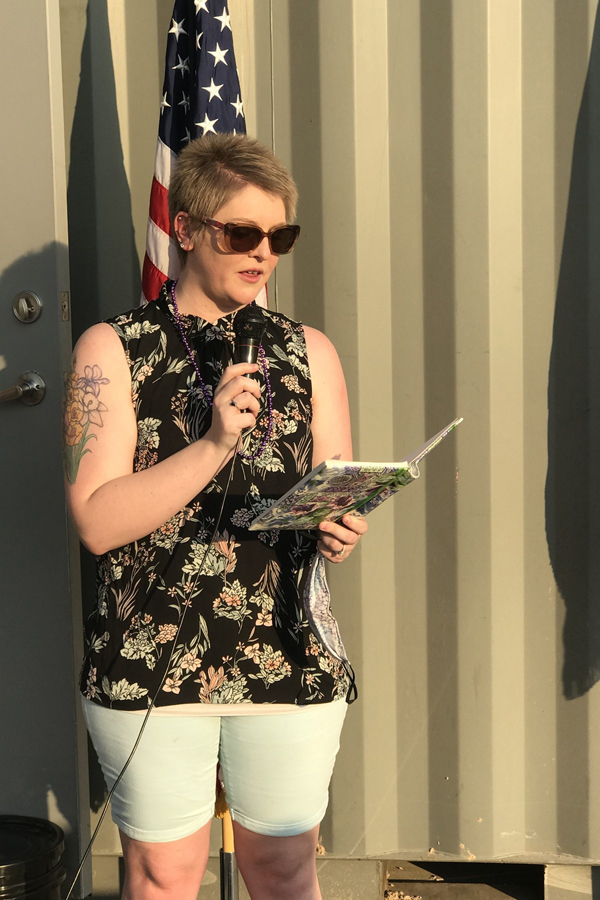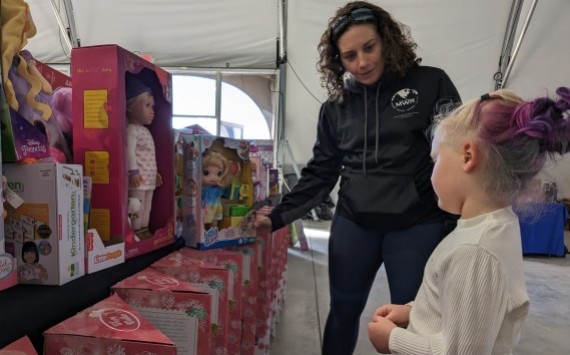Caitlyn Clark, a military spouse, first attempted suicide right before her 14th birthday. In the following months, she tried two more times.
Grief and guilt over the death of her best friend made her feel like her life was spiraling out of control.
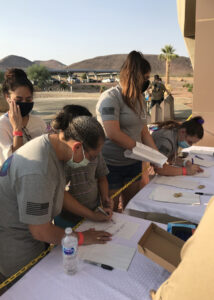
However, with the help of a community of friends and family she was able to pull herself out of a dark place and recover.
She shared her story of survival at the Weed Army Community Hospital’s Suicide Prevention Walk Sept. 1, 2020.
WACH hosted the 2.2-mile walk in remembrance of the 22 Veterans a day who die by suicide and those still struggling with “invisible wounds”, according to Maj. Julie Shin, the WACH chief of the department of behavioral health.
“[Twenty-two suicides a day is] is not the same number we have here on active duty, we have less, and it’s not the same number they have in the community, but it really rings a bell with a lot of people that there are a lot of deaths by suicide,” Shin explained.
Before the walk started, attendees could get information from multiple resources including WACH’s behavioral health department, Military & Family Life Counseling services and religious services.
Attendees also wrote encouraging messages on paper bags that later lined the last half mile of the walk as a “path of hope”, said Shin.
Events such as the Suicide Prevention Walk help build life-saving communities, according to Clark.
“For me, that community connection was my lifeline,” she said. “Having those people who had similar experiences that I could connect to and build a community with is what helped me.”
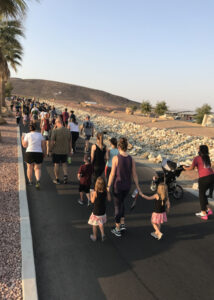
(Army photograph by Lt. Col. Jacquelin Coleman-Adams)
Clark said her story is not unique.
“It’s really important to know that we all have those moments and it’s important to reach out and make those connections,” she said. “When you’re suicidal and you feel completely alone just knowing there is someone to have a connection to, even if it’s just one person, that’s sometimes all you need.”
Due to the coronavirus pandemic, Shin planned the walk to allow for safe physical distancing while promoting an inclusive community event that included exercise.
“We know that exercise helps when we’re feeling depressed and when we’re feeling down,” she said. “If somebody’s been down for a while, and this is the one thing they come to and they feel good afterwards, maybe they’ll do it again and it’ll continue to help them.”
Shin and Clark both said they hope people took away one message from the walk: You are not alone.
“It’s a very internal, private battle that people fight with suicide and suicidal ideation and just other mental health disorders,” Shin said. “It’s better to reach out for help and get the help that you need – You don’t have to continue to struggle.”
For more information on services, please contact the WACH department of behavioral health at 760-383-5440.
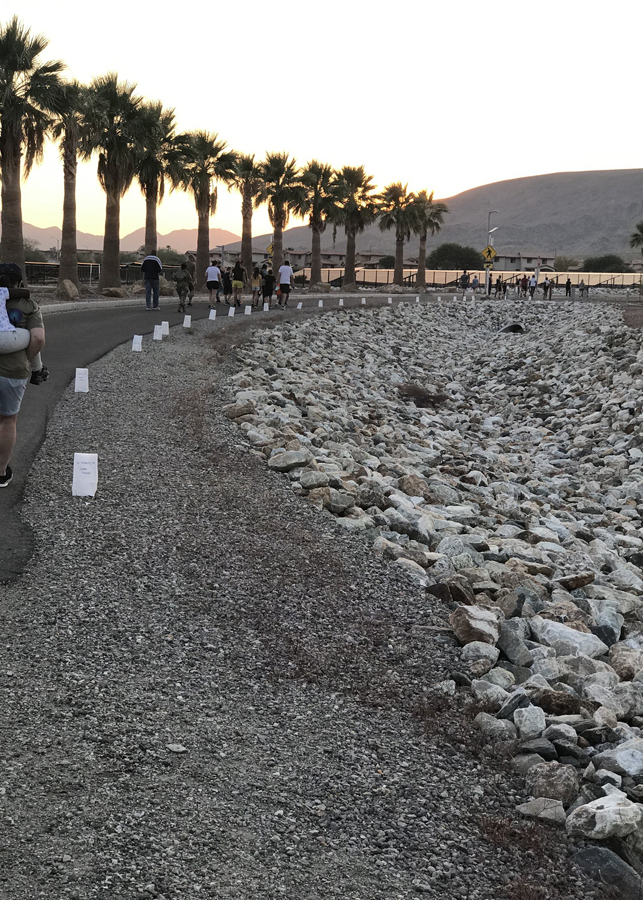
(Army photograph by Lt. Col. Jacquelin Coleman-Adams)






